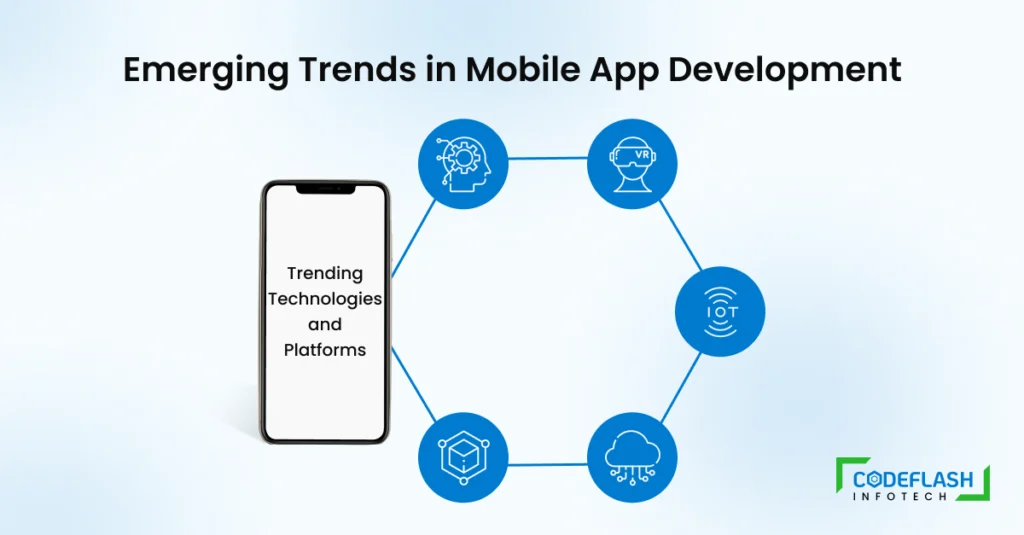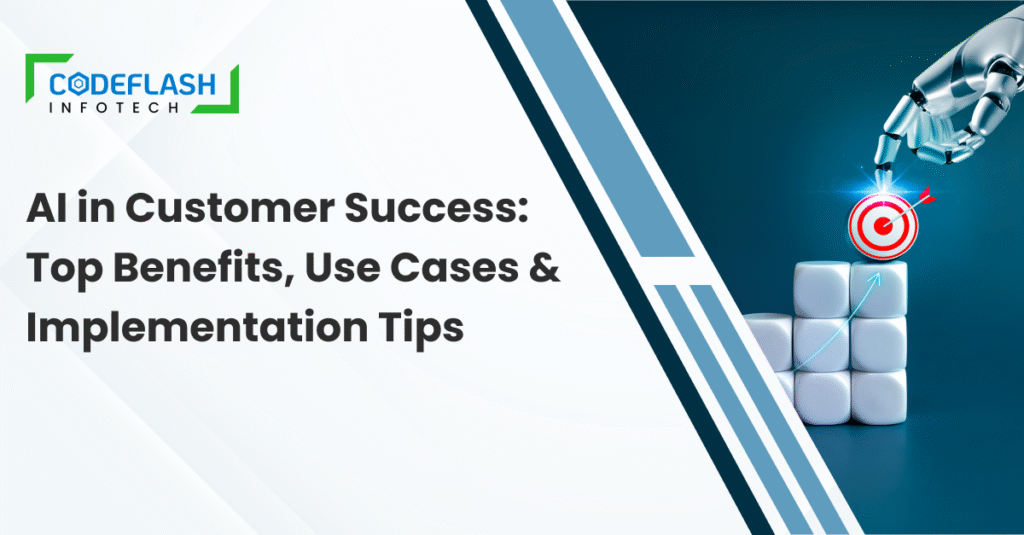
App Development
Top Mobile App Development Trends for 2026
10 FEB 2023
As technology advances and the demand for mobile applications continues to increase, the competition among mobile app developers is also heating up. To stay ahead of the curve, developers must be aware of the latest trends in mobile application development. In this article, we will explore some of the top mobile app development trends for 2026 and how they can help you create better applications for your customers.
Mobile app development is one of the most exciting and fastest-growing industries today. With new technologies and tools emerging all the time, it can be hard to keep up with the latest trends. But knowing what’s hot in mobile app development can help you make better decisions about which tools and technologies to use for your next project.

Emerging Trends in Mobile App Development
There is no doubt that mobile app development has come a long way in recent years. With the advent of new technologies and platforms, the possibilities for mobile app development are practically endless. Here are some of the most emerging trends in mobile app development that you need to know about:
1. Virtual reality and augmented reality
AR and VR are two of the most popular mobile app development trends right now. And for good reason – they offer a level of immersion and engagement that is unrivalled by any other medium.
Businesses can provide their customers with a more immersive experience thanks to AR and VR. This technology can be used for various purposes such as product visualization, gaming, training, and much more. AR allows developers to create apps that offer an enhanced experience by overlaying digital information in the real world. This technology is still in its early stages, but it has great potential for businesses that want to offer their customers a unique experience.
However, developing AR and VR can be a challenge. The technology is still in its early stages, and there are a lot of unknowns when it comes to how users will interact with AR and VR apps.
That said, there are a few best practices that developers can follow to create successful AR and VR apps:
- Keep it simple: Don’t try to do too much with your AR or VR app. Stick to one core functionality and make sure it’s polished before adding anything else.
- Make use of existing platforms: There are already some great AR and VR platforms out there, so make use of them instead of trying to reinvent the wheel.
- Think about the user experience: How will users interact with your app? Will they need to use their hands? Their eyes? Their voice? The user experience should be considered when creating your software.
- Test, test, test: As with any new technology, it’s important to test your app extensively before releasing it to the public. Make sure you test on different devices and in different environments to account for all potential scenarios.
2. Internet of Things (IoT)
IoT is one of the hottest trends in mobile app development right now. This technology can be used to create apps that collect data from devices and sensors, which can be used to improve efficiency and productivity. By integrating devices with the internet, businesses can collect data and use it to improve their products and services. IoT-enabled apps can also be used for home automation, security, and other purposes.
There are numerous ways that mobile developers can take advantage of IoT technology. For example, many apps now include features that allow users to control their homes remotely. This might include turning on the lights, adjusting the thermostat, or opening the garage door. Other apps use IoT sensors to track fitness data or monitor traffic conditions in real time.
IoT offers a lot of potential for mobile app developers who are willing to experiment and think outside the box. With the right idea, your app could be at the forefront of this exciting new era of technology.
3. Artificial Intelligence (AI) and Machine Learning (ML)
The integration of AI and ML into mobile apps is another trend that is on the rise. With these technologies, businesses can provide their users with personalized experiences based on their preferences and behaviour. AI-powered chatbots are also becoming increasingly popular as they can provide instant customer support 24/7.
Artificial intelligence (AI) is said to be the future of mobile app development. It has already made its way into many popular apps such as Siri and Google Now. Chatbots that use AI are also growing in popularity.
With AI, mobile apps can become more personalised and user-friendly. For example, a chatbot can be used to provide customer support or to recommend products and services based on the user’s preferences.
As AI continues to evolve, we can expect even more amazing and useful features to be added to mobile apps. This will make them even more indispensable in our daily lives.
4. Cloud Computing
Cloud computing is another crucial trend that all businesses should pay attention to. By using cloud services, businesses can reduce their infrastructure costs and scale their operations quickly and easily. Cloud computing has been a game changer for the mobile app development industry. It allows developers to build apps that are more scalable and can be accessed from anywhere. This is especially beneficial for businesses that need to develop apps quickly and efficiently.
Blockchain Technology and Mobile App Development
The integration of Cloud Services & Consulting with Blockchain technology in mobile app development is currently one of the most popular trends in the industry. With its distributed database, Blockchain technology provides a secure, transparent, and immutable platform for transactions, making it an excellent choice for developing highly secure mobile apps such as those for finance or healthcare. The incorporation of Cloud Integration & Consulting further enhances the capabilities and accessibility of these mobile apps.
Another advantage of using blockchain technology is that it enables developers to create decentralized applications (dApps). Applications known as “dApps” function on decentralised networks like the Ethereum network. They are therefore independent of all centralised authorities. This gives users more control over their data and privacy.
If you’re looking to develop a high-security mobile app or a decentralized application, then blockchain technology is something you should consider using.
Security Challenges with Mobile Apps
- Lack of security:
Mobile apps are often targets for hackers because they are relatively new and lack the built-in security features of more established platforms. Data breaches and other security risks may result from this. - Limited control: Unlike traditional desktop applications, mobile apps reside on the user’s device and are not under the control of the enterprise. This can make it difficult to manage security and compliance risks.
- Fragmentation: The wide variety of mobile devices, operating systems, and app stores makes it difficult to develop and deploy a consistent security strategy across all platforms.
- Lack of visibility: Mobile apps often communicate with back-end servers and services that are not under the direct control of the enterprise. This “shadow IT” can make it difficult to understand where sensitive data is stored and how it is being used.
Cross Platform app development tools
Native app development refers to apps that are developed specifically for a certain platform, such as iOS or Android. These apps are written in the native language of the platform, such as Objective-C or Java. Native app development has several advantages, including the ability to access all of the features of the device and better performance. However, native app development can be more expensive and time-consuming than other methods.
Cross-platform app development tools allow you to develop apps that can be used on multiple platforms. These tools use a variety of programming languages and frameworks, such as HTML5, CSS, and JavaScript. Cross-platform app development has several advantages, including the ability to reach a larger audience and lower development costs. However, cross-platform app development can be more difficult than native app development and may result in less functionality and poorer performance.
Conclusion
The future of mobile app development is sure to be full of exciting and innovative trends. 2025 will be an interesting year as more companies move towards cloud-native architectures that support faster development while leveraging the power of modern cloud computing technologies. AR/VR, IoT and 5G are expected to continue their upward trajectory in 2026 and beyond, while AI-driven features such as voice assistants will become even more commonplace in day-to-day life. With all these advancements, mobile app developers have plenty to look forward to in the coming years! you can also read our article about
Latest mobile app ideas in 2026 for more information.





